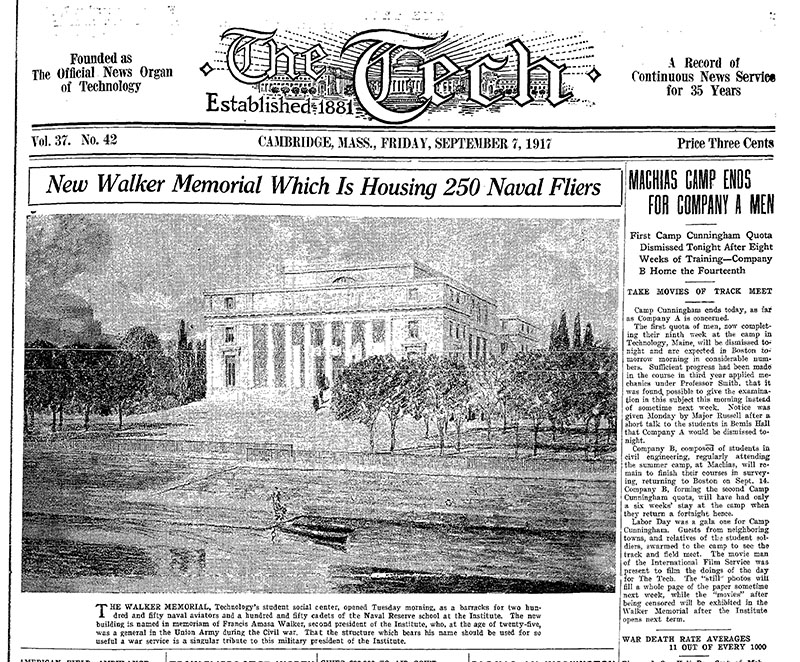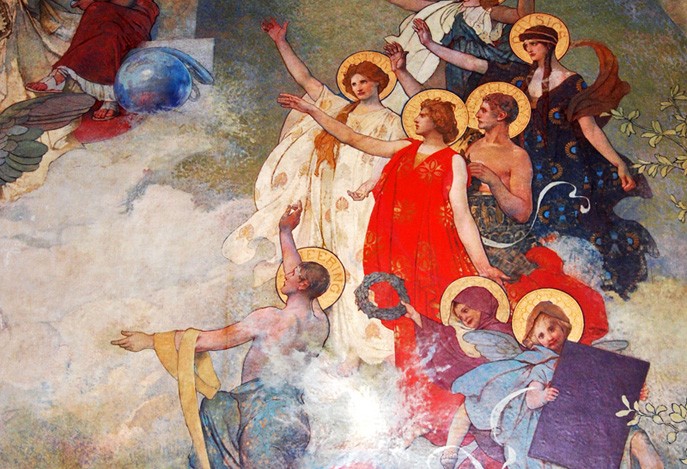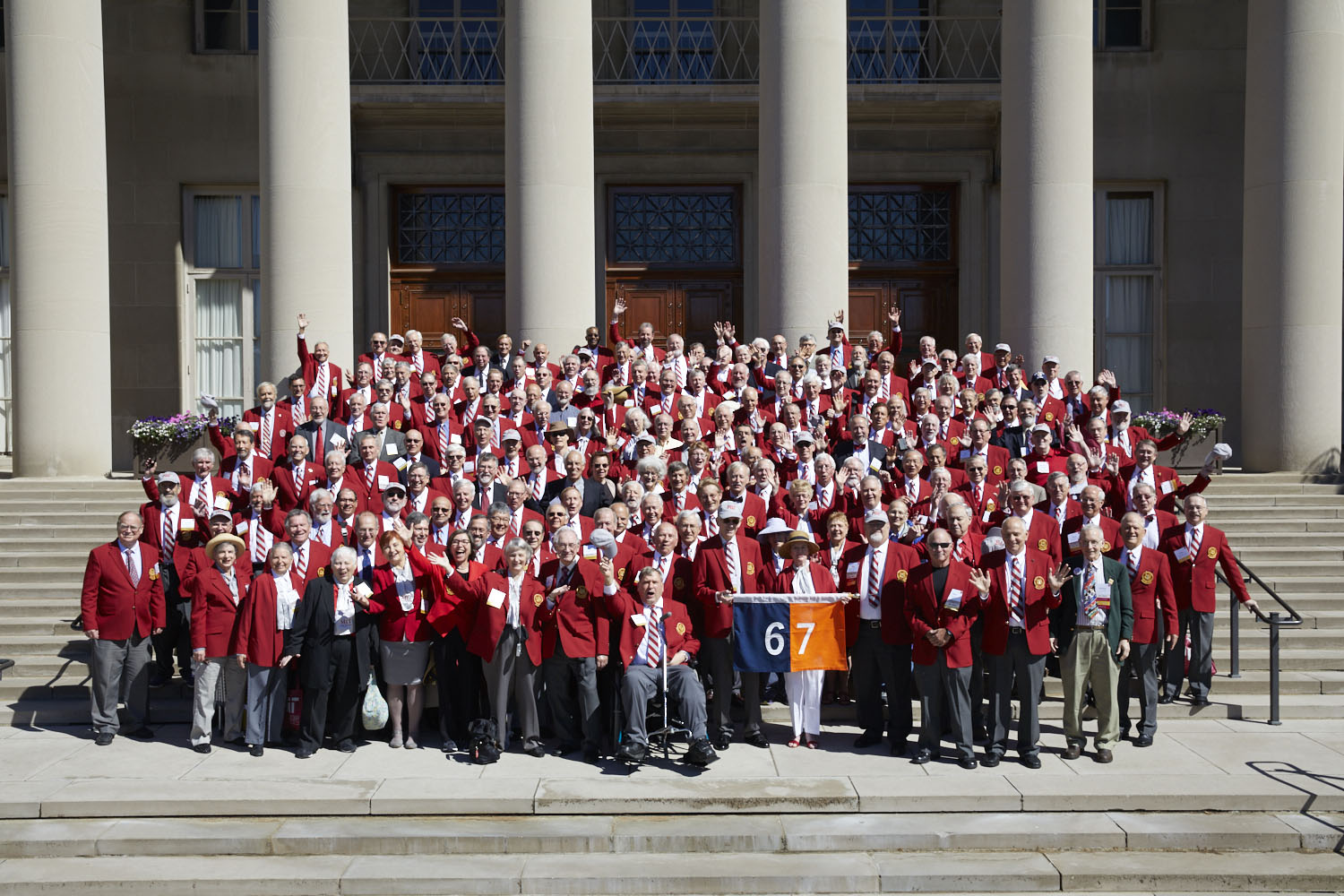Celebrating Walker Memorial’s 100th Year
-
-
slice.mit.edu
- 2
Filed Under
Recommended


Labor Day weekend 1917 marked the opening of MIT’s new student center, Walker Memorial—although not for its intended purpose. As part of the Institute’s contribution to the World War I effort, 400 naval aviation students moved into Walker, taking over the gymnasium and balconies of the big hall for dormitories, as well as the rooms on the second and third floor meant for student and faculty recreational use.
The building’s namesake, MIT President Francis Amasa Walker—still the only MIT president to have served as a military general—likely would have approved. As The Tech of the day reported: “the building erected in memory of him will be devoted to military purposes before becoming what it is destined to be, the social center of Technology.” A hub for campus activities was considered the greatest tribute to President Walker, beloved by both students and alumni for his efforts to improve student life on MIT’s cramped Boston campus.

Making that ideal student center a reality took two decades. When Walker died in 1897, the Alumni Association formed a committee to plan and fund this project, and, by 1902, funds and land had been set aside. The project was postponed when MIT announced plans to relocate from Boston. It was not until the Institute’s move to Cambridge in 1916 that construction on Walker Memorial finally became possible.
The building’s role as a landmark for MIT students began even before the building was finished. On February 9, 1917, the Class of 1918 gathered for “the first Class Photograph ever taken on the steps of Walker Memorial . . . this spot will probably be chosen as a place to take all class pictures in the future,” according to the 1918 Technique. The tradition holds years later: the Walker steps are still used for alumni group portraits, most notably that of the 50th reunion class before they march in the Commencement procession as official Cardinal and Gray Society members.

For many of those who have passed through Walker Memorial over the past 100 years, the most enduring images remain the murals in Morss Hall painted by Edwin Blashfield, Class of 1869. Created and installed between 1923 and 1930, their allegories of Alma Mater receiving homage from scientific and academic disciplines have overseen countless MIT community functions, from dining hall breakfasts to the Assembly Ball and more.
For most MIT alumni and students, Walker Memorial holds indelible memories. After the Army and Navy aviation cadets moved out in January 1919, the building was formally inaugurated as a student center. Henry A. Morss, Class of 1893, then president of the Alumni Association, formally presented Walker Memorial to MIT “for the students that the student body would thereby be united and the Technology spirit be fostered.” A century later, President Walker’s tribute had been realized in the best possible way with the building continuing to serve as a community gathering place.








Comments
Warren Seamans
Sat, 09/23/2017 10:22am
Beautifully written Robert B!
Joel Shwimer
Mon, 08/28/2017 4:00pm
A great article highlighted by the picture of the Class of '67!